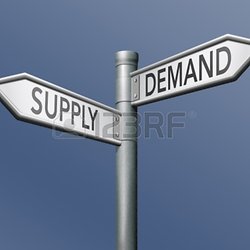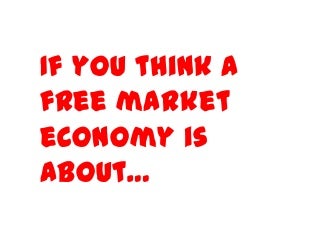 A non-market economic system” is any international country that the U.S. Department of Commerce determines does not operate on market ideas of price or pricing constructions. Somewhat reflection will show that if in a market a powerful enhance in demand does not lead to any appreciable rise in value, not only must supply be extremely elastic, but where massive stocks are the cause of this elasticity, holders of stocks will need to have a purpose for selling out.
A non-market economic system” is any international country that the U.S. Department of Commerce determines does not operate on market ideas of price or pricing constructions. Somewhat reflection will show that if in a market a powerful enhance in demand does not lead to any appreciable rise in value, not only must supply be extremely elastic, but where massive stocks are the cause of this elasticity, holders of stocks will need to have a purpose for selling out.
It follows that if we find a case during which increased savings do not cause any appreciable fall in the fee of interest this indicates that the capital market has its suspicions—which may turn into totally unjustified—in regards to the permanent character of this sudden enhance in the demand for securities.
If due to this fact in a despair we find the long-term fee of interest remaining relatively inflexible this indicates that, rightly or wrongly, the capital market believes in the continued existence of investment opportunities yielding marginal profit at the former stage, investment opportunities which the despair could have obscured but which it has not obliterated.
It is indeed fairly obvious that in a dynamic economic system with fast technical progress and extensive and frequent earnings fluctuations all expectations primarily based on the prevalence of long-run developments should be of a somewhat problematical character, but to our present downside this is strictly irrelevant.
Finally, the market economic system leads to periodic economic crises, where all these disadvantages develop to a degree that many of the advantages I mentioned earlier simply dry up the economic system stops growing, fewer things are made, growth of the forces of production slows down, investment drops off, and so forth.

